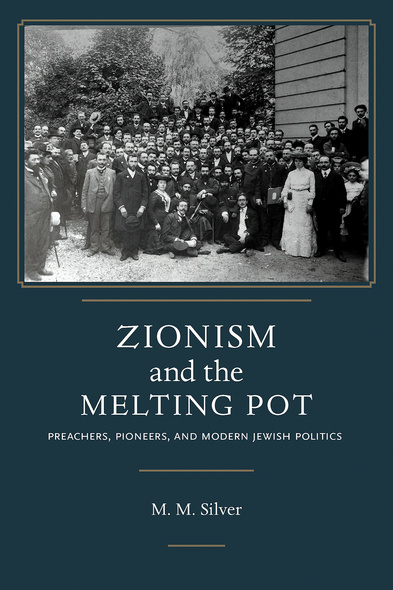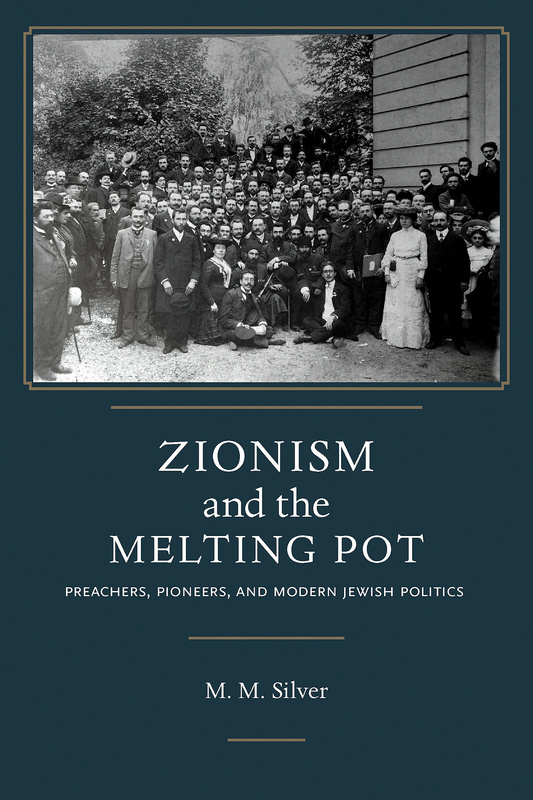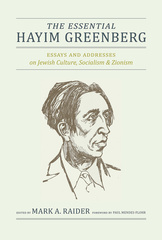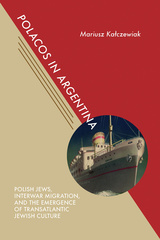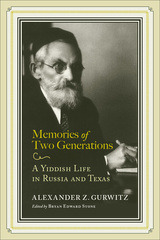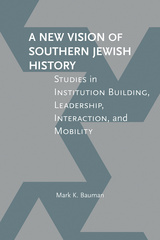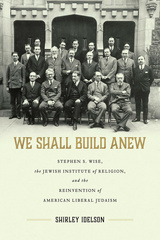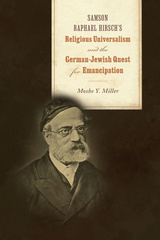Zionism and the Melting Pot
Preachers, Pioneers, and Modern Jewish Politics
University of Alabama Press
Traces the roots of ideologies and outlooks that shape Jewish life in Israel and the United States today
Zionism and the Melting Pot pivots away from commonplace accounts of the origins of Jewish politics and focuses on the ongoing activities of actors instrumental in the theological, political, diplomatic, and philanthropic networks that enabled the establishment of new Jewish communities in Palestine and the United States. M. M. Silver’s innovative new study highlights the grassroots nature of these actors and their efforts—preaching, fundraising, emigration campaigns, and mutual aid organizations—and argues that these activities were not fundamentally ideological in nature but instead grew organically from traditional Judaic customs, values, and community mores.
Silver examines events in three key locales—Ottoman Palestine, czarist Russia and the United States—during a period from the early 1870s to a few years before World War I. This era which was defined by the rise of new forms of anti-Semitism and by mass Jewish migration, ended with institutional and artistic expressions of new perspectives on Zionism and American Jewish communal life. Within this timeframe, Silver demonstrates, Jewish ideologies arose somewhat amorphously, without clear agendas; they then evolved as attempts to influence the character, pace, and geographical coordinates of the modernization of East European Jews, particularly in, or from, Russia’s czarist empire.
Unique in his multidisciplinary approach, Silver combines political and diplomatic history, literary analysis, biography, and organizational history. Chapters switch successively from the Zionist context, both in the czarist and Ottoman empires, to the United States’ melting-pot milieu. More than half of the figures discussed are sermonizers, emissaries, pioneers, or writers unknown to most readers. And for well-known figures like Theodor Herzl or Emma Lazarus, Silver’s analysis typically relates to texts and episodes that are not covered in extant scholarship. By uncovering the foundations of Zionism—the Jewish nationalist ideology that became organized formally as a political movement—and of melting-pot theories of Jewish integration in the United States, Zionism and the Melting Pot breaks ample new ground.
Zionism and the Melting Pot pivots away from commonplace accounts of the origins of Jewish politics and focuses on the ongoing activities of actors instrumental in the theological, political, diplomatic, and philanthropic networks that enabled the establishment of new Jewish communities in Palestine and the United States. M. M. Silver’s innovative new study highlights the grassroots nature of these actors and their efforts—preaching, fundraising, emigration campaigns, and mutual aid organizations—and argues that these activities were not fundamentally ideological in nature but instead grew organically from traditional Judaic customs, values, and community mores.
Silver examines events in three key locales—Ottoman Palestine, czarist Russia and the United States—during a period from the early 1870s to a few years before World War I. This era which was defined by the rise of new forms of anti-Semitism and by mass Jewish migration, ended with institutional and artistic expressions of new perspectives on Zionism and American Jewish communal life. Within this timeframe, Silver demonstrates, Jewish ideologies arose somewhat amorphously, without clear agendas; they then evolved as attempts to influence the character, pace, and geographical coordinates of the modernization of East European Jews, particularly in, or from, Russia’s czarist empire.
Unique in his multidisciplinary approach, Silver combines political and diplomatic history, literary analysis, biography, and organizational history. Chapters switch successively from the Zionist context, both in the czarist and Ottoman empires, to the United States’ melting-pot milieu. More than half of the figures discussed are sermonizers, emissaries, pioneers, or writers unknown to most readers. And for well-known figures like Theodor Herzl or Emma Lazarus, Silver’s analysis typically relates to texts and episodes that are not covered in extant scholarship. By uncovering the foundations of Zionism—the Jewish nationalist ideology that became organized formally as a political movement—and of melting-pot theories of Jewish integration in the United States, Zionism and the Melting Pot breaks ample new ground.
Dr. Silver’s innovative study explores the tripartite matrix of ‘preaching, emissary work, and [Zionist] pioneering.’ He marshals a remarkable breadth and depth of knowledge to inject the field with a fresh and nuanced analysis of the ‘internal dynamics’ and ‘interplay’ of the modern Jewish experience vis-à-vis ‘gentile society.’’
—Mark A. Raider, editor of The Essential Hayim Greenberg: Essays and Addresses on Jewish Culture, Socialism, and Zionism
‘A bold, revisionist history of the dynamics of Modern Jewry. Silver links east and west, the Promised Land and the Golden Land, through smart rereadings of texts, thoughtful reevaluations of central figures and religious leaders, and a persuasive insistence that modernization and the late nineteenth-century crisis of Russian Jewry form the basis for two great contemporary ideologies: Zionism and the melting pot. This is a bracing and imaginative study.’
—Jonathan D. Sarna, Joseph H. and Belle R. Braun Professor of American Jewish History, Brandeis University
‘‘Melting Pot’—a metaphor-turned-proverb describing integration and assimilation into America—and Zionism are customarily understood as incompatible political strategies, caught in a zero-sum game. Combining the careful historian with the sonorous essayist, M. M. Silver seeks to challenge this premise. The result is simultaneously a wonderfully readable account of modern Jewish politics and an impassioned defense of Jewish nationalism, revealing the surprising, understudied shared origins of and crossovers between these two ideological paths.’
—Arie M. Dubnov, author of Isaiah Berlin: The Journey of a Jewish Liberal and editor of Zionism–A View from the Outside [in Hebrew]
By uncovering the foundations of Zionism—the Jewish nationalist ideology that became organized formally as a political movement—and of melting-pot theories of Jewish integration in the United States, Zionism and the Melting Pot breaks ample new ground.’
—New Books Network
M. M. Silver is professor of Jewish history at the Max Stern Yezreel Valley College and at the University of Haifa in Israel. He has published books in Hebrew and English that include Our Exodus: Leon Uris and the Americanization of Israel’s Founding Story and Louis Marshall and the Rise of Jewish Ethnicity in America: A Biography.

